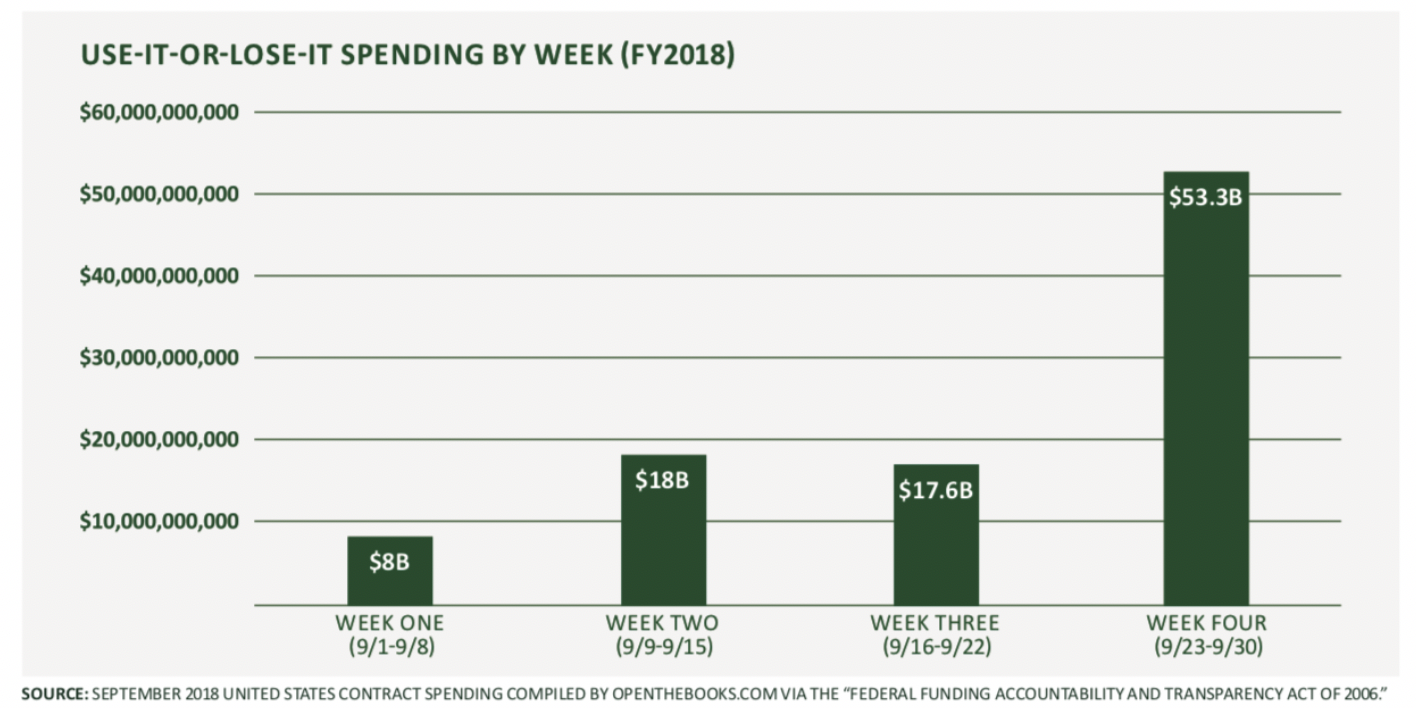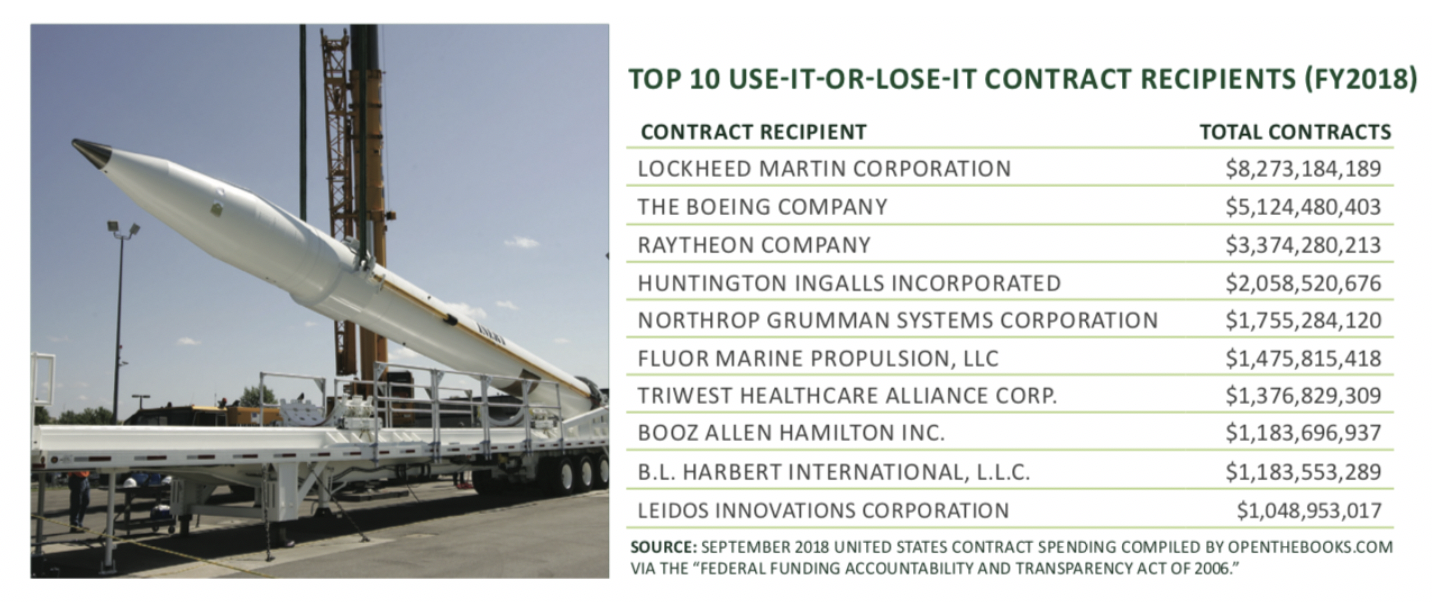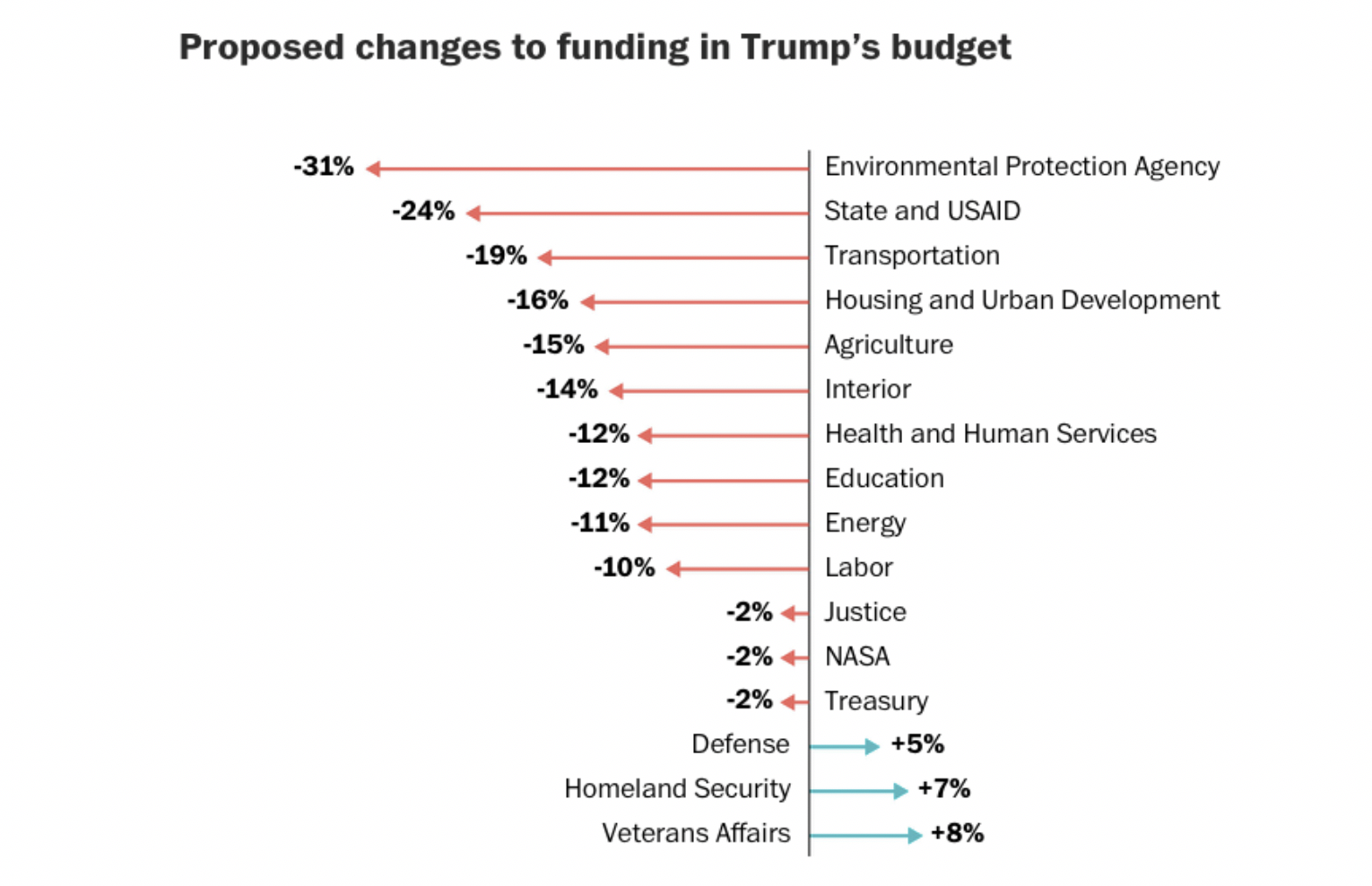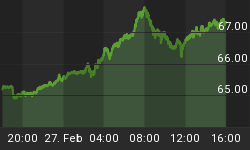For American taxpayers who cringe at the thought of footing the bill for things like Medicaid and Medicare, it provides little comfort to know that they’re footing the bill instead for the federal government to gorge itself on lobster and alcohol and ensure that everyone has a fidget spinner and a golf cart to get around.
Trump has proposed a record $4.75 trillion budget, and it’s necessary when—according to Fox Business—the federal government it spent $4.6 million on lobster tail and crab in a single month in 2018.
But shellfish was only part of the federal government’s year-end 2018 shopping spree, according to OpenTheBooks.com, which says $97 billion was spent in September 2018 alone—the final fiscal month--in a “use-it-or-lose-it” spending spree.
It’s nothing new—it happens every September, but 2018 was significantly higher. OpenTheBooks.com found that “federal agencies took their taxpayer-funded shopping spree to a new level last year, spending $97 billion on contracts, in total”, marking a 16-percent increase from fiscal year 2017 and a 39-percent increase from fiscal year 2015.
A whopping $53 billion was spent in the last seven days of the fiscal year, with last-minute panic purchases including contracts for everything from fidget spinners, alcohol, snacks, Cross Fit equipment and musical instruments to guns, ammo and bombs.
Of the 66 government agencies that participated in the fiscal year-end spending spree, the Department of Defense racked up the biggest bill, at $61.2 billion (we’re not sure who got the fidget spinners), according to OpenTheBooks.com. Related: The Purchasing Power Paradigm
During the course of the month of September, the federal government spent $3.2 billion a day on contracts, but as September came to a close, the 27th and 28th saw it spend more than $10 billion a day on contracts.

(Click to enlarge)
And while $4.6 million went to lobster tails, the report also notes that:
• $9.8 million was spent on workout equipment
• $7.7 million was spent on iPads
• $1.7 million went to musical equipment (oddly enough, $1.3 million of this was spent by the Department of Defense)
• $673,471 was spent on golf carts
• $308,994 was spent on alcohol
• $53,004 was spent on china tableware
• $9,241 was spent on a single leather chair
It’s a tough pill to swallow for the many Americans who can’t afford to pay their exorbitant medical bills—even when they’re hard-working middle-class folk.
The biggest contract winners for 2018 were, not surprisingly, the defense giants:

(Click to enlarge)
All of this comes out at the same time as Trump’s proposed budget for 2020, released on Monday.
The new budget proposes significant cuts to federal government spending, but not on fidget spinners and lobster tail. The biggest cuts proposed are for the Environmental Protection Agency (EPA), according to the Washington Post, which put it in the following graph:

(Click to enlarge)
The kicker is that the budget proposal calls for a 5 percent increase in the Defense Department’s budget, plus $8.6 billion for a border wall that isn’t going to happen.
Trump’s $4.75 trillion budget is the biggest budget in the history of US federal government budgets. Even so, it plans to save $1.9 trillion on vital healthcare programs, including Medicaid and Medicare.
At the end of the day, Congress will rewrite it all, presumably while dining on lobster tail, though Medicare won’t be covering the ensuing gout.
By Charles Benavidez for Safehaven.com
















